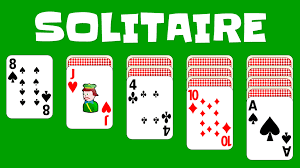
Easy to learn but challenging to master, the game’s straightforward setup promises endless replayability. However, beneath simple rules is a strategic depth that reveals the secrets of truly skillful play. As free online solitaire has exploded from casual pastime to legitimate esports, elite strategies allowing anyone to unlock higher levels of play have moved into the spotlight. When first grasping for expert status, many players prioritize memorizing defined card patterns and sequences that reliably win deals. These shortcuts are universal fundamentals underpinning all solitaire success.
Rather than fixating on memorized gambits, optimize basic technique through drills ensuring smooth foundational play every time. Keep running cycles of deals focused solely on clean draws, cascades, and builds suited to your skill level until these become muscle memory. Fluidity moving cards from the tableau to foundations and through free cells gives flexibility in improvising when unfamiliar layouts inevitably occur in competitive play. Only after manually handling thousands of unique hands will pattern recognition activate intuitive autoresponse.
Master key sorting principles
All variants of solitaire rely on grouping cards into escalating runs by suit, prioritized numerically. Two key sorting principles unlock faster clustering.
- Spot key convergence cards with value ranges touching multiple builds. For example, a 5 able to place towards either completing a run of low cards or starting a run of higher ones has pivot potential to advance multiple suits. Treat these multiplier cards as priorities when uncovering options.
- Isolate dead weight cards without current value. Rather than tracking these mentally, physically separate unplayable cards clogging tableau columns to focus solely on those presently operational. Confining useless cards condenses decision space.
Leverage both analytical and creative cognitive approaches
Legendary players advise balancing structured analysis with creative improvisation when addressing unfamiliar card patterns. Initially conduct quick structured checks registering the total number of cards in each suit and potential builds. Also, note foundational gaps and any imbalances suggesting priority suits. This analytic first scan sets the strategic stage. Next, allow intuitive instincts to guide the eye across the cards rather than following a pre-mapped diagnostic sequence. Trust subconscious magnetism toward combinations as this fluid creativity sparks breakthroughs analysis alone may miss. Letting the deck also “play you” rather than just playing the deck proves consistently powerful for champions.
Play the percentages
To gain an unbiased look at Solitaire Cash mastery, a person must also be able to internalize statistical probabilities relating to decision trade-offs. Two foundational statistics: dealing runs of 3 gives 52% odds of freeing a needed card versus 48% from runs of 1. Similarly, exposing hidden cards by dealing 10 rather than just 3 raises the chances of uncovering a usable card from 23% to 47%. Simple percentages guide tactical choices with massive downstream impact. Yet most casual players underutilize the odds encoded directly into the deck. By combining this probabilistic awareness with pattern memorization, fundamentals mastery, dual-processing approaches, and endgame composure, solitaire wins systematically.
Test skills against tournament competition
For motivated students, the training ground par excellence puts lessons into practice by testing their mettle against top players in free online solitaire tournaments. Across popular platforms like the World Solitaire Federation or Solitaire, bracket-style multi-round events feature everything from lightning formats to marathon long-haul tourneys. After sufficient solo drilling, and measuring skills against crowd favorites, former champions and rising stars alike prove the true final exam. Only in the fires of matches where focus and execution either falter or harden under pressure will most learn whether secrets truly unlocked not just play preference but adaptive performance. Treat tournaments then as open books where strategic wrinkles reveal themselves through experience against diverse challengers.







